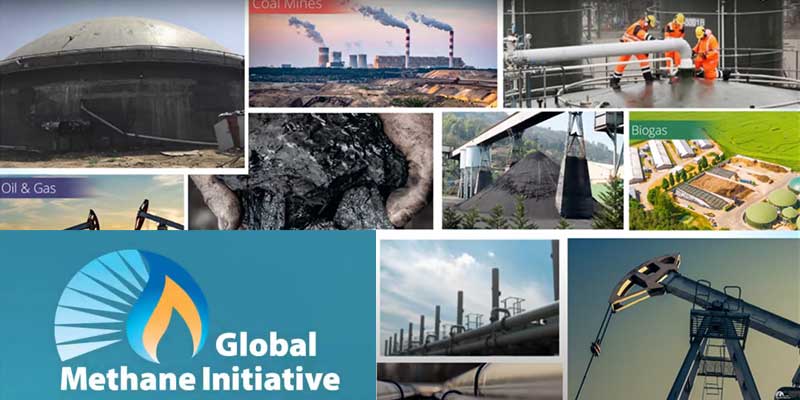- World
- Dec 11
Explainer / What is Global Methane Initiative?
A Steering Leadership meeting of Global Methane Initiative (GMI) was held virtually in which coal ministry’s additional secretary V.K. Tiwari, as the vice chairman of this initiative, informed the participants about the work being carried out by India to mitigate the emission of methane.
The chairperson of the Steering Leadership is from Canada.
What is the Global Methane Initiative?
• Launched in 2004, the Global Methane Initiative (GMI) is an international public-private initiative that advances cost effective, near-term methane abatement and recovery and use of methane as a clean energy source in three sectors: biogas (including agriculture, municipal solid waste, and wastewater), coal mines, and oil and gas systems.
• The Initiative aims to reduce informational, institutional and other market barriers to project development through the development of tools and resources, training and capacity building, technology demonstrations and direct project support.
• The GMI consists of a steering committee, three technical sub-committees, 45 partner countries, and 700+ project network members that work together to promote project development and encourage active engagement from the private sector.
• GMI provides technical support to deploy methane-to-energy projects around the world that enable partner countries to launch methane recovery and use projects.
• India is one of the members since its inception and has taken up vice-chairmanship for the first time in the Steering Leadership along with the US.
• The forum has been created to achieve global reduction in anthropogenic methane emission through partnership among developed and developing countries having economies in transition.
• Working with the GMI steering committee and sector sub-committees, project network members have helped GMI leverage nearly $600 million in investment from private-sector companies and financial institutions to recover and use methane as a renewable energy source around the world.
Methane’s role in global warming
• Methane is a potent greenhouse gas tens of times more powerful than carbon dioxide in warming the atmosphere. It is a short-lived climate pollutant with an atmospheric lifetime of roughly a decade.
• Intergovernmental Panel on Climate Change (IPCC) research shows that methane is responsible for at least a quarter of today’s global warming and reducing human-caused methane, which accounts for more than half of all methane emissions, is one of the most effective ways of combating climate change.
• The recent Global Methane Assessment launched by the Climate and Clean Air Coalition (CCAC) and the United Nations Environment Programme (UNEP) found that cutting human-caused methane by 45 per cent this decade would keep warming beneath the threshold agreed by world leaders.
• This alone would avoid nearly 0.3°C of global warming by the 2040s. Each year it would prevent 255,000 premature deaths, 775,000 asthma-related hospital visits, 73 billion hours of lost labour from extreme heat, and 26 million tonnes of crop losses globally.
• Methane from human activity falls into three main sectors: agriculture (40 per cent), fossil fuels (35 per cent) and waste (20 per cent). Livestock farming is a key cause of methane in the agriculture sector.
• In the fossil fuel sector, oil and gas extraction, processing and distribution accounts for 23 per cent, and coal mining accounts for 12 per cent of emissions. With pre-existing technology, a 75 per cent reduction in methane from the oil and gas sector is possible, 50 per cent of this could be done at no net cost.
Manorama Yearbook app is now available on Google Play Store and iOS App Store


